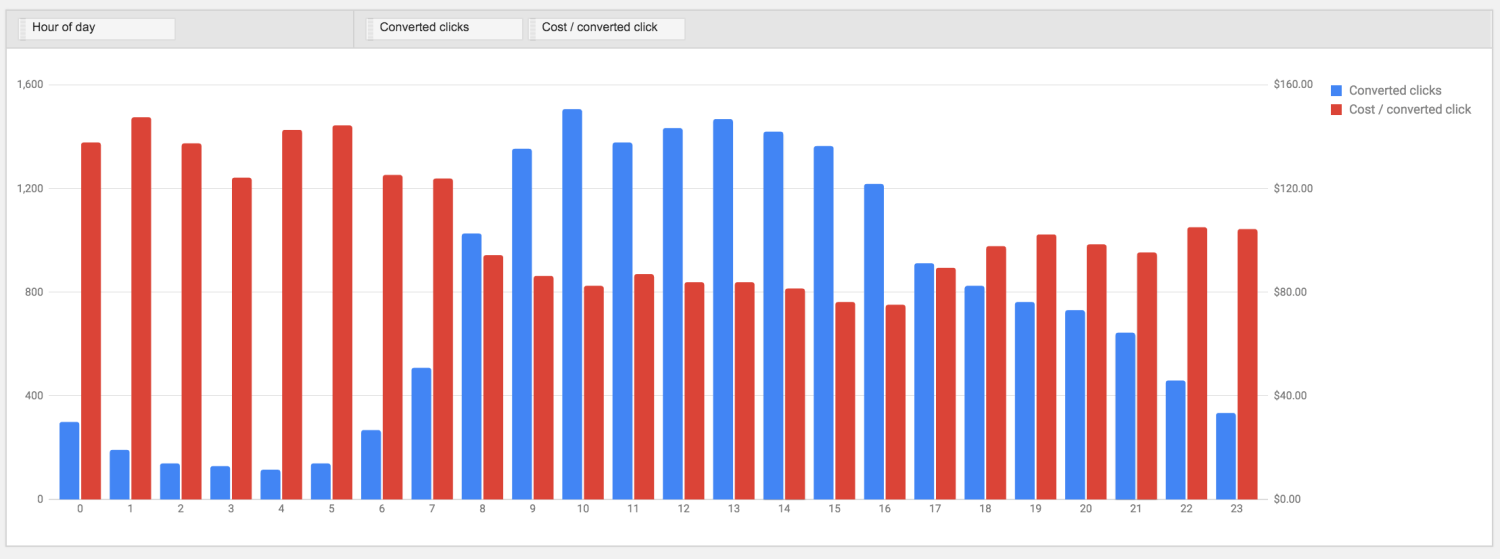The Secret to Effective AdWords Management? Incremental Changes
by Craig Wakefield • January 12, 2016
In marketing, it’s easy to look for the next big thing that will finally make your campaigns mind-blowingly profitable.
AdWords management is no exception. Type in “AdWords management best practices” or “AdWords tips” and you’ll find dozens—if not hundreds—of blog articles explaining how to improve your AdWords campaign performance.
Most of these tips and best practices are actually useful and the articles are well worth reading. The problem is, they usually don’t produce game-changing results on their own.
In life, big wins usually aren’t the result of big changes. Big wins come from hundreds and thousands of consistent incremental changes that together add up to something amazing.
Small Wins Really Are Big Wins…Over Time
For example, take gas mileage. If you’re driving a 1997 GMC Sierra 1500, you’re getting 17 miles per gallon on average, which is pretty awesome for a full size truck.

Now imagine you drive 20 miles one way to work. If all you do is improve your gas mileage by 20% (20.4 miles per gallon), you’ll end up saving $305.88 every year.
If you plan on driving that truck for the next 10 years like I do, you’ll save $3,058.80—which is over half of what I paid for the truck itself!
But Craig, you say, gas mileage is fairly fixed. Aside from giving up my GMC Sierra, how am I supposed to improve my gas mileage by 20%?
Again, the secret isn’t making a big change (like giving up your sweet truck), it’s in making lots of consistent little changes.
Here is a list of EASY changes anyone can make to improve gas mileage:
- Upgrade your air filter
- New spark plugs
- Check your tire pressure
- Clean your fuel injectors
- Don’t drive like a crazy person
- Change your tires
- Change your oil and oil filter
Incremental changes add up to big savings. The great news is that small incremental changes are just as easy to make in your AdWords account as they are to your car.

Here are a few small tips that help you save big:
1. Ad Copy Testing
When setting up your ad groups, make sure you have two different ads that compete against each other. Then, set a reminder in your calendar in two weeks to check the status of the test.
When you check again in two weeks, pause the loser (higher conversion rate, lower CPC, higher CTR, etc.) and create a new ad to compete against the winner and repeat the process.
It’s a simple process, but over time you’ll see marked improvements in your key performance indicators (KPIs). And, you’ll be building a database of information on which ads work for which audiences!
2. Time Parting
Look at the reports tab in AdWords and set the date range for as far back as you have history. Then, select the bar chart and compare day-of-the-week or hour of day to conversions with cost-per-conversion. You can also compare to other metrics you may be interested in such as cost-per-click, click volume, etc.

Looking at this data will allow you to evaluate the effectiveness of your campaigns on different days, at different times, etc. Once you know what’s been working, go to the Settings tab of your campaigns and adjust your ad schedule. Add budget to more effective time periods and stop advertising during days or times when your ads aren’t turning a good profit.
This simple change may not cut your cost-per-click by 50% overnight, but over time it can really improve your cost-per-lead and cost-per-sale, which matter more to your bottom line, anyways.
3. Negative keywords
Navigate to the search terms report within your account. Again, look at the largest reasonable time frame.
Now, sort by impressions to view the most common search terms that trigger ads. As you see irrelevant terms, add them as a negative keyword to block them from triggering ads. To go make sure they don’t trigger ads in other campaigns, add them to a shared negative keyword list in your shared library.
Sweat the Small Stuff
Okay, all this doesn’t mean you need to get stressed out if you’re a few weeks late changing your motor oil or if you forget to set up an ad copy split test. The point here is that going to the effort to make small, consistent changes to your AdWords account will produce the big results you need over time.
So, if you haven’t found a game-changing win yet, just focus on making small improvements to your campaigns. Over time, that will add up to a big win and paying attention to the details in your account just might give you the insight you need to come up with a game-changing plan.
By the way, if you’d like me to take a look at your AdWords account and suggest some ways you can start improving campaign performance today, let me know here or in the comments!
Now I want to hear from you. What small changes have you seen greatly improve campaign performance?





